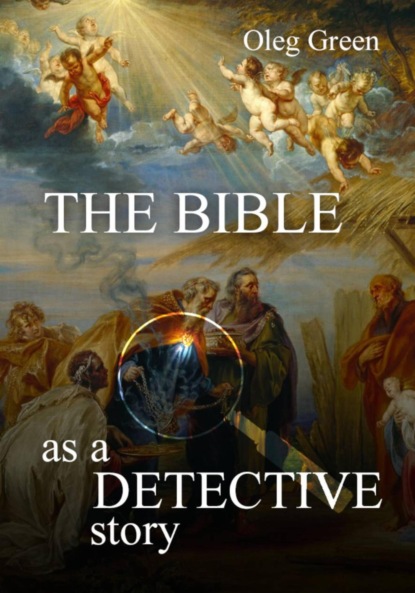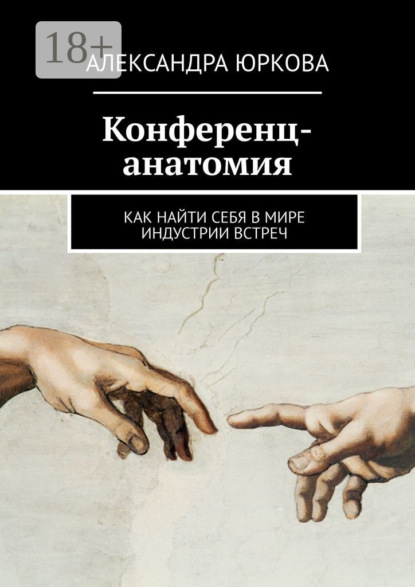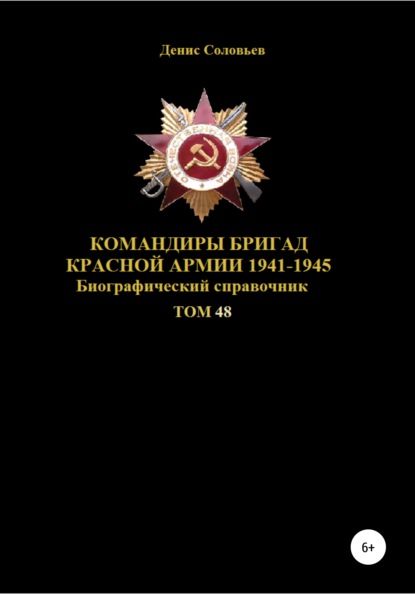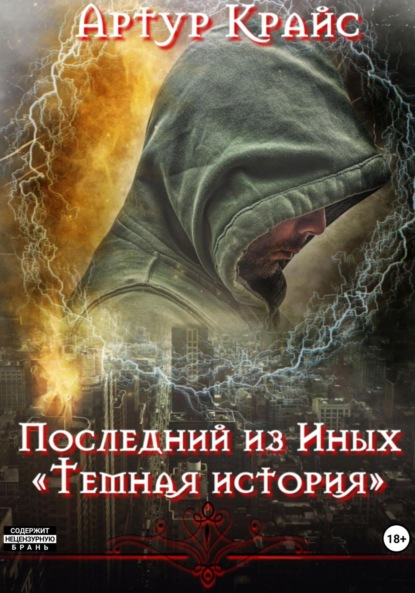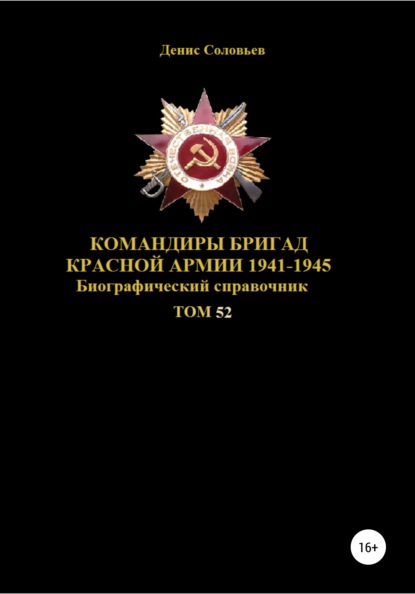- -
- 100%
- +
“And there was Anna, a prophetess, the daughter of Phanuel, of the tribe of Asher, a woman of a great age, having lived with an husband seven years from her virginity, and being a widow about fourscore and four years old, who did not depart from the temple, but served God with fastings and prayers night and day. And she came at that time and glorified the Lord, and spoke of Him to all who were looking for redemption in Jerusalem.” (Luke 2: ‑36-38)
This "spoke of him to all who were looking for redemption in Jerusalem" simply means that she prophesied that this child was the future Messiah. It was in this sense that the Jews of that time, under Roman occupation, were expecting "redemption." And how did this "all" react, considering that Anna was prophesying directly in the Jerusalem Temple? The author fabricates the words so that by the very next line he forgets what he wrote the line before…
And as for the literal contradiction with Matthew, in which the news of the birth of the future King of the Jews makes Herod want to kill him, only for Joseph and his family to escape to Egypt overnight, there's nothing to say. In Luke, the baby is calmly brought directly to Jerusalem, and they preach about him right there in the Temple. It's a good thing that by that time, Herod is already dead, and Archelaus has already been removed from his post as ruler of Judea. Well, more precisely, it's like this: at the same time, Herod the Great is still alive and killing the infants of Bethlehem while Joseph hides the baby in Egypt, and at the same time, Joseph openly brings him to the Jerusalem Temple, where the righteous Simeon and Anna openly preach about him. But seriously, consider this: even the educated and literate (a rarity in those days!) authors of the Gospels don't even know when—or even approximately—the events took place! Although Matthew and Luke write at roughly the same time, it's believed they wrote in the second half of the first century. And one claims Jesus was born during the reign of Herod the Great, while the other claims it was during the reign of Quirinius! An astonishing level of knowledge… But Luke "knows," word for word, the contents of ‑Mary's private conversation with her relative Elizabeth, which "occurred" before Jesus' birth.
Don't be embarrassed, this is completely normal. It's good that "the world has four directions, and the world has four main winds," right? It's just that each wind blows in its own direction… Logic? Conscientious transmission of information? No, we haven't heard of that.
And another small but interesting detail. A little further on in the text, the author writes that John's father, Zechariah, regained his gift of speech after Elizabeth's child was born, and he delivered a prophetic sermon. It includes the following lines:
“And you, child, will be called a prophet of the Most High, for you will go before the face of the Lord to prepare His ways, to give understanding of salvation to His people by the forgiveness of their sins, according to the compassionate mercy of our God, by which the Dayspring from on high has visited us to give light to those sitting in darkness and the shadow of death , to guide our feet into the way of peace.” (Luke 1: ‑76-78)
It's important to understand the exact meaning of the highlighted phrase here. I've checked the original Greek and am translating it into Russian for you as closely as possible:
" from the depths of the mercy of our God, in which the Rising from on high will visit us to give light to those sitting in darkness and the shadow of death ."
That is, the Synodal translation quite correctly highlighted “East” with a capital letter – it is not about God being above the East (that is, this is not a direct mockery of Matthew, especially since Luke greatly respects his meanings and ideas), but God is called the East.
The Synodal translation's blunders: the present tense is "visited," while in the original the future tense is "will visit," and "East" instead of "Sunrise"—a significant difference, since it's not about the cardinal direction, but about the Sunrise in the face of God illuminating the darkness.
The Synod's motives are perfectly clear, but consider their treachery… To draw the missing parallel here with Matthew's Magi from the East, who were deliberately removed by Luke, and to replace the future coming of the Dawn, which will illuminate those sitting in darkness, with the actual coming of the East in the form of the Magi sent by God. I really, really want to somehow ‑fit the owl onto the globe and reconcile the fundamentally incompatible Matthew and Luke…
As for Luke, his words are, of course, a critical "allaverdi" from him to Matthew and his "wise men from the east." Surprisingly, modern biblical scholars (for example, the highly respected Bart Ehrman) claim that Luke did not rely on Matthew's text, but only on Mark's. Which, of course, is incorrect. And how he did! Simply ideologically, not textually, but in a clear attempt to present it better, reinterpreting it in his own way.
Here's a little something else. Earlier, in the same prophecy, Zechariah says:
“Blessed be the Lord God of Israel , for He has visited His people and redeemed them , and has raised up a horn of salvation for us in the house of His servant David, as He spoke by the mouth of His holy prophets, who have been since the beginning of time, that He would save us from our enemies and from the hand of all who hate us . He would show mercy to our fathers and remember His holy covenant, the oath which He swore to Abraham our father , to give us without fear, after we had been delivered from the hand of our enemies .” (Luke 1: ‑68-74)
Here we see the typical messianic expectations of a Jew of that time. He speaks for the Jewish people and awaits deliverance from Roman occupation, with the triumphant return of the Messiah—the King of Israel. Of course, Luke is a Jew and awaits the coming of the Jewish King in the person of the coming Messiah Jesus.
And let's look at another scene from Luke:
"And when he was twelve years old, they also went up to Jerusalem, as was the custom, for the feast. And when they had completed the days of the feast, and were returning, the child Jesus remained behind in Jerusalem. And Joseph and his mother did not perceive it, but supposed that he was going with the company. And when they had gone a day's journey, they sought him among their relatives and acquaintances. And when they did not find him, they returned to Jerusalem, seeking him.
After three days they found him in the temple, sitting in the midst of the teachers, listening to them and asking them questions. All who heard him were amazed at his understanding and answers.
And when they saw Him, they marveled. And His mother said to Him, “Son, what have You done to us? Behold, Your father and I have been searching for You sorrowing.” He said to them, “Why was it necessary for you to seek Me? Did you not know that I must be about My Father’s business?” But they did not understand the words He spoke to them. (Luke 2:42-50 ‑)
We see here, again, I apologize, another example of "naive art" from Luke. He wants to create a beautiful, pious story (like the Annunciation), but he can't make it believable.
Joseph and Mary didn't notice their son's absence for a whole day's journey (!)?! So he's just gone, all day, so what? He's probably with others… A twelve-year-old boy! Just imagine, dear reader, that you and your family, along with a few other relatives and friends, are setting off on a long journey. And you calmly, let's say, board the train, ignoring the fact that your twelve-year-old son isn't with you, so he remains lost in the crowd on the platform. And then you ride the train all day, still ‑not seeing your son, but it doesn't bother you at all—so what, he's probably in the next car with his friends… Is that even possible? A teenage son, a capital city with its huge crowds flocking to Jerusalem for the holiday! And you leave the city without seeing your son and not worrying about where he is?! And yet, you face a journey through two countries, from Jerusalem to Galilee.
Likewise, Jesus himself “quietly ‑” remains in the Temple, without warning his parents about his decision.
And it's all made up for the sake of Jesus's dramatic final line. Which, incidentally, is just as implausible: what does "or did you not know" mean if Joseph and Mary truly didn't know? Not to mention that it's an inappropriate response, since Mary reproaches him for "what he did to them," causing them "great sorrow." The author's version of Jesus's response implies that his parents should have guessed that he didn't go with them and remained in the Temple to preach?
And, of course, the author's simple-minded desire to show the reader that Jesus, ‑already at the age of twelve, was teaching the teachers of the Law (later, the authors of "apocryphal" texts would reach the point that Jesus could speak immediately after birth, and performed miracles and even raised the dead while still a child. But Luke undoubtedly initiated the development of this theme).
Next, let us consider the scene of Baptism as it is given by the author:
“When all the people were baptized, and Jesus also, when he had been baptized, was praying, heaven was opened, and the Holy Spirit descended upon him in bodily form like a dove. And a voice came from heaven, saying, ‘You are my beloved Son; in you I am well pleased!’” (Luke 3:31-32 ‑)
Then Luke gives the genealogy of Joseph, followed by the following phrase:
“Jesus, full of the Holy Spirit , returned from the Jordan and was led by the Spirit into the wilderness.” (Luke 4:1)
Notice that this is an early Christian understanding of who Jesus is (we see the same thing in Mark): the Holy Spirit descends on Jesus only at baptism, and it is only after that that he becomes filled with the Holy Spirit.
And finally, here's another implausible story. Jesus, after a 40- ‑day fast and temptation in the desert , sets out to preach throughout Galilee, and finally arrives in his native Nazareth. On Saturday, he enters the synagogue, where he reads Scripture. Then he addresses the congregation:
“He said to them, ‘Surely you will say to Me this proverb: Physician, heal Yourself. Do also here in Your own country what we have heard done in Capernaum.’ And He said, ‘Truly I say to you, no prophet is accepted in his own country. Truly I say to you, there were many widows in Israel in the days of Elijah, when the heavens were shut up three years and six months, until there was a great famine throughout the land. And Elijah was not sent to any of them, but to a widow in Zarephath of Sidon. And there were many lepers in Israel in the time of the prophet Elisha, and not one of them was cleansed except Naaman the Syrian.
When they heard this, all in the synagogue were filled with rage. They rose up and threw Him out of the city and led Him to the top of the hill on which their city was built, so that they might throw Him down. But He passed through the midst of them and went away.” (Luke 4:23-30 ‑)
Firstly ‑, refusing to perform a miracle (and that's obviously what they're talking about ) can't be a reason for rage that reaches the point of attempted murder. Secondly ‑, the death penalty among Jews of that time required a trial and verdict by the Sanhedrin and was used in exceptional cases. Can you imagine synagogue-goers dragging another Jew off a mountain for a short sermon (complete with Scripture quotes) and refusing to perform a miracle? And finally, ‑thirdly, this is ancient Israel, a tribal system. By killing a person without due trial, you're encroaching not only on him, but also on a huge number of his relatives. And fourthly, this is Jesus' hometown of Nazareth! Incidentally, Nazareth, according to modern historians, is a tiny town, more like a small village. That is, everyone there knew everyone from childhood, including, of course, Jesus and his parents. And they're planning to kill him there? Jews from the synagogue? And literally for nothing?
According to Jewish law, the death penalty is applied in strictly defined cases, but not arbitrarily, because, ‑supposedly, "they were filled with wrath." This is another simple-minded early Christian tale, of which there would be a great many later. Anyone who has read the apocryphal gospels can appreciate their naivety.
Well, the last thing here about Luke:
“There was a certain rich man, who was clothed in purple and fine linen, and fared sumptuously every day. And there was a certain beggar named Lazarus, who lay at his gate, full of sores, and desiring to be fed with the crumbs which fell from the rich man’s table; and the dogs came and licked his sores. The beggar died and was carried by the angels to Abraham’s bosom. The rich man also died and was buried. And in Hades, being in torment, he lifted up his eyes, and saw Abraham afar off, and Lazarus in his bosom. And he cried out, saying, Father Abraham, have mercy on me, and send Lazarus, that he may dip the tip of his finger in water, and cool my tongue: for I am tormented in this flame. But Abraham said, Son, remember that in your lifetime you received your good things, and Lazarus evil things: “But now he is comforted here, but you are in pain;” (Luke 16:19 ‑25)
This parable, placed by the author in Jesus's mouth, appears only in the Gospel of Luke. In it, Jesus preaches that those who lived well in this life will suffer eternal torment in hell in the afterlife as punishment. So, it's unlikely that Jesus actually said this. However, I can't help but note that the author confirms my personal observations: a person's moral standard, in the vast majority of cases, is directly related to their intellectual level. In Luke, a man is condemned to eternal hell by God's decree for dressing well and eating well in life. And in Luke's Acts, also authored by him, either God or Peter miraculously kills a husband and wife, Ananias and Sapphira, for concealing part of the proceeds from the sale of their property from the Apostle Peter (see the "Miracles" chapter below, where this obvious fabrication is examined in detail).
The Gospel of John
And finally, let's move on to the Gospel of John. Let me remind you that it is the latest of the four canonical Gospels, and historians date it to approximately the end of the first century.
Surprisingly, the latest author acts in the same way as the earliest: he tells us nothing about the "virgin" conception, the circumstances, or the place of Jesus's birth. Note, however, that John and Mark also have in common that, unlike Matthew and Luke, they are the original authors of the texts, rather than editing and supplementing someone else's. John acts in the same way as Mark: he introduces Jesus to the reader through John's opinion of him. Except, perhaps, not from the very first lines: at the beginning of his text, the author of the Gospel inserts a kind of religious poem (which he certainly did not write, but he, of course, does not mention this): "In the beginning was the Word, and the Word was with God, and the Word was God (…)", into which he inserts his own lines about John the Baptist, so that at the end of the poem he can move on to the rest of the story of John and the baptism of Jesus:
These things took place at Bethabara beyond the Jordan, where John was baptizing. The next day John seeth Jesus coming toward him, and saith, Behold the Lamb of God, which taketh away the sin of the world! This is he of whom I said, After me cometh a man, which is preferred before me: for he was before me. I knew him not: but for this cause came I baptizing with water, that he might be revealed unto Israel. And John bare record, saying, I saw the Spirit descending from heaven like a dove, and it abode upon him. I knew him not: but he that sent me to baptize with water said unto me, Upon whomsoever thou seest the Spirit descending, and abideth upon him, the same is he that baptizeth with the Holy Spirit. And I saw, and testified that this is the Son of God. The next day again John stood, and two of his disciples. And when he saw Jesus coming, he said, Behold the Lamb of God. And when the two disciples heard him speak these words, they followed Jesus. (John 1: ‑29-37)
I wonder, who is this "He who sent" John to baptize in water? God? But a little further in the text, John himself, according to the author of the text, directly denies being a prophet:
“And this is the testimony of John, when the Jews sent priests and Levites from Jerusalem to ask him, ‘Who are you?’ He confessed and did not deny it, but confessed, ‘I am not the Christ.’ And they asked him, ‘What then? Are you Elijah?’ He said, ‘No.’ Are you a prophet? He answered, ‘No.’” (John 1: ‑19-21).
"Testimony"? (Referring to the further prophecy of Jesus as the Messiah). The point here is that in Russian, the word "prophet" means "prophet of the future." But in Judaism, this is not the case; a prophet is not necessarily a foreteller. A prophet in Judaism is someone who carries out God's direct instructions. Accordingly, if John was truly ‑commissioned by God to do or say something, then he is a prophet. But John denies this. Moreover, in this Gospel, he actually foretells Jesus, yet simultaneously refuses to call himself a prophet. Logic? There is none. You might as well look for it in Luke.
The author then adds the supposed “testimony” of several other people about who Jesus is:
“Then Jesus turned and saw them following, and said to them, “What do you seek?” They said to Him, “Rabbi” (which is translated, “Teacher”), “where do you live?” He said to them, “Come and see.” So they came and saw where He lived, and stayed with Him that day. It was about the tenth hour. Now one of the two who had heard about Jesus from John and followed Him was Andrew, Simon Peter’s brother. He first found his brother Simon and said to him, “We have found the Messiah” (which is translated, “Christ”). And he brought him to Jesus. Then Jesus looked at him and said, “You are Simon the son of Jonah; you shall be called Cephas” (which is translated, “A Stone”). The next day Jesus set out to go into Galilee, and finds Philip and said to him, “Follow Me.” Now Philip was from Bethsaida, the same town as Andrew and Peter. Philip finds Nathanael and says to him, “We have found him of whom Moses in the law and the prophets wrote, Jesus of Nazareth, the son of Joseph.” But Nathanael said to him, “Can anything good come out of Nazareth?” Philip says to him, “Come and see.” When Jesus saw Nathanael coming toward him, he says of him, “Behold, an Israelite indeed, in whom there is no guile.” Nathanael says to him, “How do you know me?” Jesus answered and said to him, “Before Philip called you, when you were under the fig tree, I saw you.” Nathanael answered him, “Rabbi, you are the Son of God; you are the King of Israel.” (John 1: ‑37-49)
Well, I'll be damned! John the Baptist and his disciples know from the very beginning that Jesus is the Messiah!
Interestingly, Luke and Matthew tell of John the Baptist, in prison, sending two of his disciples (two, that is, as witnesses) to ask Jesus if he is the Messiah ("Are You the Coming One, or do we look for another?"). But in the Gospel of John, John the Baptist immediately knows that Jesus is the Son of God! And Andrew and Nathanael directly call Jesus the Messiah, the King of Israel!
Well, and a mere trifle: according to Mark, it is Jesus who personally invites the brothers Simon (Peter) and Andrew to follow him, and not Andrew who learns about Jesus from John and brings his brother to him:
"Now as he walked by the Sea of Galilee, he saw Simon and Andrew his brother casting a net into the sea: for they were fishermen. And Jesus said to them, 'Follow me, and I will make you become fishers of men.' And they immediately left their nets and followed him" (Mark 1: ‑16-18).
Apparently, John, writing at the end of the first century, could see from afar how Jesus acquired these two disciples…
By the way, since we're talking about John the Baptist, the Gospels tell the story of how and why John was executed:
"Now when Herod heard this, he said [about Jesus – the author], This is John, whom I beheaded; he is risen from the dead. For this same Herod sent and seized John, and bound him in prison for Herodias's sake, his brother Philip's wife; for he had married her. For John had said to Herod, It is not lawful for you to have your brother's wife.
Herodias, however, was angry with him and wanted to kill him, but she could not. For Herod feared John, knowing him to be a righteous and holy man, and he cherished him. He did many things in obedience to him and listened to him with pleasure. A convenient day came when Herod, on the occasion of his birthday, was giving a banquet for his nobles, the captains, and the elders of Galilee. Herodias's daughter came in and danced, pleasing Herod and those who reclined with him. The king said to the girl, "Ask me whatever you wish, and I will give it to you." And he swears to her, "Whatever you ask of me, I will give you, even up to half my kingdom."
She went out and asked her mother , "What should I ask for?" She answered, "The head of John the Baptist." And she went immediately with haste to the king and asked, saying, "I want you to give me this very moment the head of John the Baptist on a platter." The king was saddened, but because of the oath and those who reclined with him, he did not want to refuse her. And immediately the king sent his armor-bearer and commanded that his head be brought. He went and cut off his head in the prison, and brought his head on a platter and gave it to the girl, and the girl gave it to her mother." (Mark 6: ‑16-28)
Dear reader, do you believe this tale of "half the kingdom to a maiden for a dance"? The author of these lines, alas, does not believe in fairy tales. Therefore, he believes that the opposite was true: Herod intended to kill John. But—to avoid public outrage, and perhaps even among the courtiers, for John was highly revered—he concocted this scheme. He supposedly held John in high esteem (despite having imprisoned him, yes, indeed) and ‑had no desire to see him dead, but was simply forced to execute him—simply because of a rash oath he had sworn .
Mary and Joseph
Let's briefly recall how the authors of the Gospels introduce us to Joseph and Mary (I don't mean their mentions in this or that context, but rather their formal introduction at the beginning of the life of Jesus – who are his mother and adoptive father):
Конец ознакомительного фрагмента.
Текст предоставлен ООО «Литрес».
Прочитайте эту книгу целиком, купив полную легальную версию на Литрес.
Безопасно оплатить книгу можно банковской картой Visa, MasterCard, Maestro, со счета мобильного телефона, с платежного терминала, в салоне МТС или Связной, через PayPal, WebMoney, Яндекс.Деньги, QIWI Кошелек, бонусными картами или другим удобным Вам способом.


